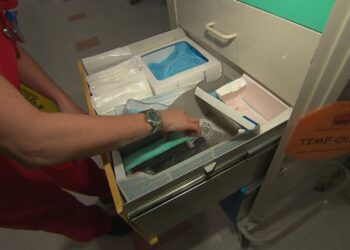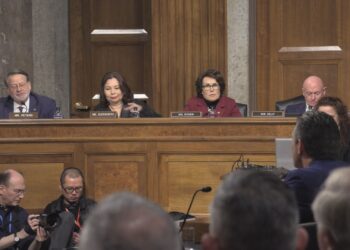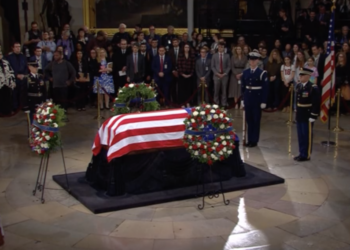WASHINGTON, D.C. – It’s been a couple of weeks since a train carrying hazardous materials derailed on the Ohio-Pennsylvania border. Crews are still cleaning up the mess and families living near the crash site are still being impacted. A group of bipartisan lawmakers on Capitol Hill crafted new legislation they say will help prevent future derailments.
In the weeks after the Norfolk Southern train derailment in East Palestine, Ohio, just right across from the Pennsylvania border, which led to toxic chemicals spilling and a controlled burn of substances, crews are still cleaning up the mess it’s left behind.
“Rachel, if I had to summarize it in terms of what happened to the people of Ohio in Pennsylvania, Darlington, Pennsylvania, Beaver County, we have got to be responsive to them in two ways,” said Sen. Bob Casey (D- PA). “In the short run, making sure that every federal and state agency are helping the people in the community and doing everything they can under existing law to hold Norfolk Southern accountable.”
Casey is co-sponsoring the Railway Safety Act of 2023 in response to the crash.
“It’ll improve safety requirements, especially for railcars, rail companies transporting hazardous material,” said Casey. “Sometimes that gets left out of the safety requirements a lot more, and tougher audits and inspections of rail companies and rail railcars. Thirdly, it’ll impose very tough civil penalties on these companies. Sometimes a company can have all kinds of violations, and they’re a multibillion-dollar company and they pay a pittance. We have to have civil penalties that hit them hard because sometimes that’s the only way to get the message through to a big corporation. You got to hit them hard with penalties. This bill will do it.”
Casey is pointing the finger at Norfolk Southern for this disaster, calling them the “bad actor”. But he said this bill will most importantly also focus on supporting communities impacted by rail disasters, like requiring first responders to have training to safely manage a potentially toxic and deadly crash scene.
“We can’t wait for some future policy debate,” said Casey. “We’ve got to help them right now.”
In the preliminary report, the NTSB determined a wheel bearing was in the final stage of overheat failure before the crash. This legislation Casey and others are proposing will also address wheel bearing issues, mechanical failures and requires more oversight and maintenance.







